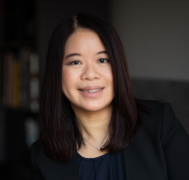Just do it? – FinTech Futures

Have you ever wondered how millionaires are born? By sheer luck? Out of grit, as many in the startup world would say? Or simply by making smart decisions with your retirement plans, as I heard from a wealth manager recently?

How can we as an industry be more empathetic and create solutions that matter?
It’s easy enough, they say. Just max out your 401(k) and take advantage of matching contributions that your employer offers. Just like that. That’s how most Americans become millionaires. At least according to the asset manager. According to the Capgemini World Wealth Report 2022, the number of millionaires in the United States increased by 13.5% from 6.6 million in 2020 to 7.5 million in 2021.
It’s easy enough. Just do it.
The reality is that not everyone has access to a 401(k) plan. According to the latest report from the AARP Policy Institute, nearly half of private sector workers aged 18 to 64 – 57 million Americans – do not have the ability to save for retirement at work:
- About 78% of those who work in companies with fewer than 10 employees and about 65% who work in companies with 10 to 24 employees lack a plan.
- Nearly three out of four workers with less than a high school degree do not have a retirement plan from their employer, compared to those with a college degree (50%) or a bachelor’s degree or higher (32%).
- 46 million workers with annual incomes of $50,000 or less – 81% of the 57 million – do not have access to an employer-provided pension plan. Arguably, these are also the workers who can benefit the most from having a consistent savings mechanism.
Unfortunately, access to a pension scheme also differs significantly by demographics. About 64% of Hispanic workers, 53% of black workers, and 45% of Asian American workers lack access to an employer-sponsored retirement plan.
The challenge is further enhanced by the changing nature of the work.
According to the latest American Opportunity Survey (AOS) by McKinsey, “36% of employed respondents – equivalent to 58 million Americans when extrapolated from the representative sample – identify themselves as independent workers”.
The group cuts across all ages, education levels and incomes, including immigrants, younger workers, and those who are less financially established, as well as high earners. Many face barriers to health and financial well-being, with only 32% of independent workers accessing health insurance through their workplace or unions. Without a stable employer’s salary, they are also more likely to face more financial challenges, including access to credit.
It reminds me of the saying: Economic inequality is a political choice.
According to the World Economic Forum, the United States was ranked 27th (out of 146 countries) in terms of gender equality. Unfortunately, I’m not surprised. In almost every state in the United States, women represent the highest percentage of minimum wage workers.
Consider these staggering statistics from Oxfam:
- Nearly a third of the American workforce earns less than $15 an hour, with approximately 52 million workers and their families struggling to make ends meet.
- 40% of women (31 million people) earn less than $15 an hour, including half of working women of color, compared to 25% of men.
- Among working single parents, 57% (11.2 million people) earn less than $15.
From income to leading positions and political representation, women are underrepresented. Despite making up more than 50% of the population, women make up only about 27% of legislators and 25% of Fortune 500 board seats.
So, to my dear friends and colleagues, now that we have the statistics (yet again), what are we going to do with them? How do we as a society advocate for more inclusive policies that can better support our changing demographics and our way of life? And how can we as an industry be more empathetic and create solutions that matter?
As it turns out, that’s also a choice. And the choice is ours.
 About the author
About the author
Theodora (Theo) Lau is the founder of Unconventional Ventures. She is co-author of Beyond Good and co-host of One Vision, a podcast about fintech and innovation.
She is also a regular contributor to top industry events and publications, including Harvard Business Review and Nikkei Asian Review.
























